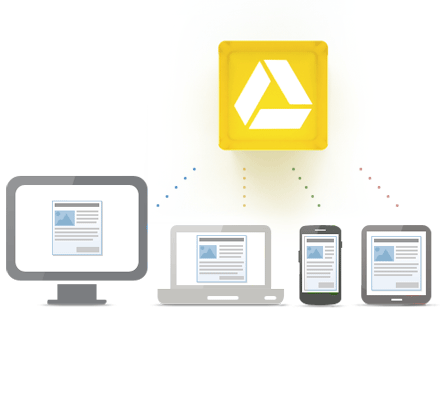Will Google Drive get you to drop Dropbox?


Google Drive works in a similar manner to Dropbox, creating a folder on your computer that syncs across any device that the account is linked to. That, coupled with the Android and eventual iOS apps (not to mention its SDK), makes the service almost infinitely expandable -- much like DropBox.
But the big question now is this: Is Google Drive compelling enough to make you want to ditch Dropbox? Here are are few reasons that might be the case.
You rely strongly on Google services
While this one is a bit obvious, it's also the most clear and compelling advantage Google Drive has to offer so far. If you are a big user of services like Gmail and Google+, Drive will become a natural, probably seamless extension of that.
Google Docs collaboration is a big part of your workflow
Collaboration appears to be a pretty big part of the Google Drive experience,which is why Google Docs is getting built directly into the service. Collaboration works in real-time, allowing multiple users to work on spreadsheets and presentations with few hiccups (in theory, anyway). If you are a heavy user of Google Docs, using Google Drive is probably a no-brainer.
You're a fan of free space (and deals)
Free Google Drive accounts come with 5GB of free storage, which is a pretty big jump over the (pre-referral) 2GB freebie that Dropbox gives new users.
Tiered prices tell a similar tale: At $4.99 a month, Google Drive's 100GB offering is half the price of the identical Dropbox account. (It's also notable that Dropbox's Pro accounts start at 50GB, whereas Google Drive's own start at 25GB, which certainly affords users a bit more flexibility.)
You trust Google (and the government) completely
With Google Drive, Google is set to extend its indexing tendrils from the web into your personal files. Seeing as how the company has had a bit of an inconsistent track record in matters of privacy, this should probably give you pause. Then again, this isn't much of a problem if you don't typically concern yourself with privacy issues.
Likewise, as ZDNet writer Zack Whittaker points out, putting any kind of sensitive information on a cloud-based service is a risky endeavor. This reality isn't unique to Google Drive, of course -- but it's worth keeping in mind.